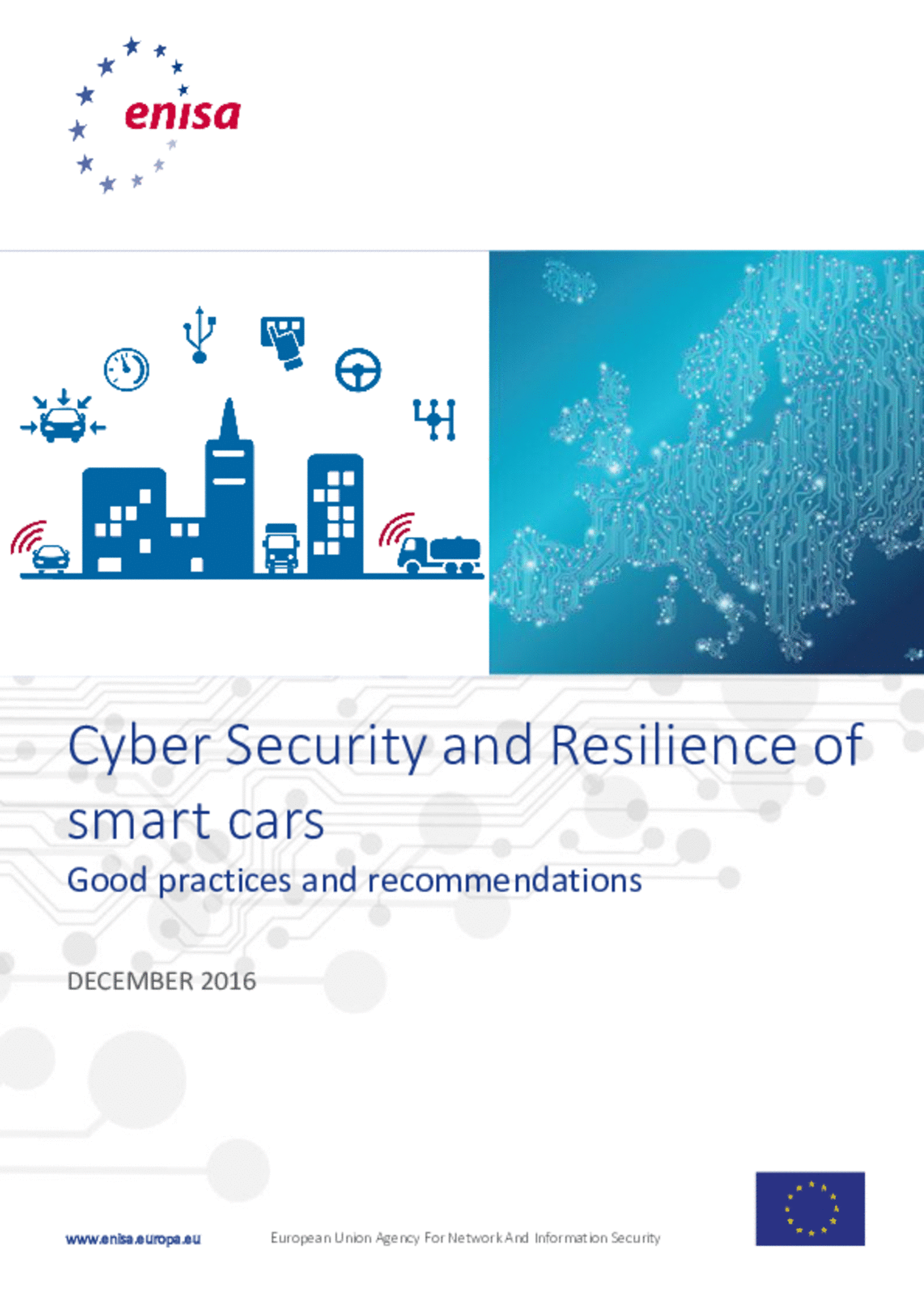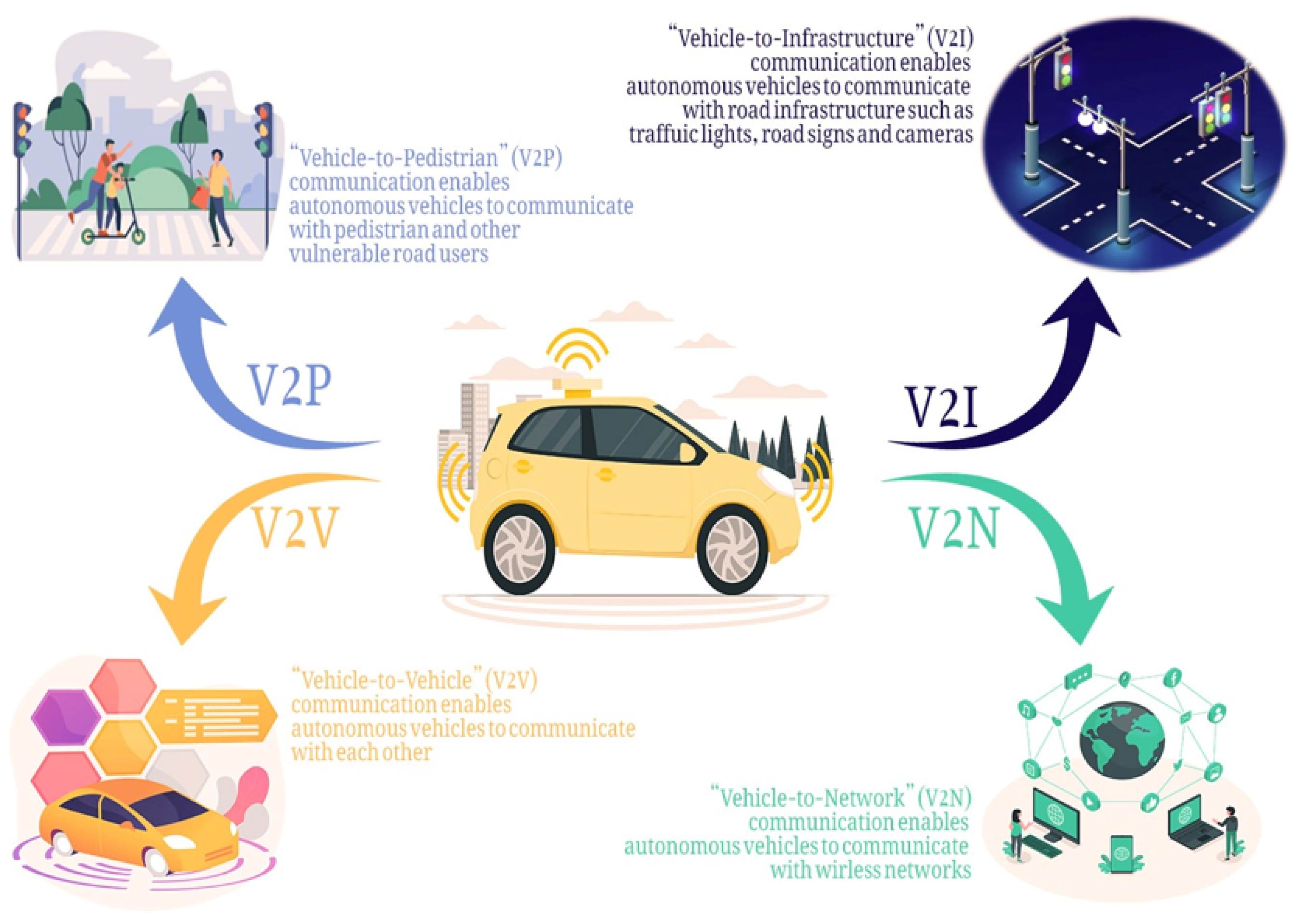Smart cars are transforming the way we drive, offering a realm of convenience and advanced technology.
Yet, this exciting evolution brings with it a critical consideration: smart cars and cybersecurity challenges. As vehicles become increasingly connected, the landscape of potential cyberattacks expands, with hackers seeking to exploit vulnerabilities. This introduces significant threats to both our safety on the road and the privacy of our personal data. Therefore, understanding these emerging cybersecurity challenges is not just important, but crucial for both car owners and manufacturers alike.

Credit: www.enisa.europa.eu
Introduction To Smart Cars
Smart cars represent a new era in transportation. They combine technology with traditional automotive features. These vehicles offer convenience and enhanced safety. Connectivity is a key aspect, linking cars to networks and devices. As technology advances, smart cars become more sophisticated. Cybersecurity challenges also emerge, requiring attention and solutions.
Evolution Of Automotive Technology
Cars have changed a lot over the years. Early models were simple machines. They lacked advanced features or connectivity. Then came electronic systems and GPS. These innovations improved navigation and comfort. Today, cars are more connected than ever. They integrate with smartphones and the internet. This evolution brings both benefits and risks.
Key Features Of Smart Cars
Smart cars offer several impressive features. They have advanced sensors and cameras. These tools assist with parking and driving. Some cars can even drive themselves. Connectivity allows remote control through apps. Safety features are enhanced, protecting drivers and passengers. These features make driving easier and more enjoyable.
What are the smart cars and cybersecurity challenges?
Smart cars face growing cybersecurity threats as technology advances. Hackers target vulnerabilities in vehicle software systems. Protecting against these risks is crucial for passenger safety and data security.
Smart cars are the future of the automotive industry, combining advanced technology with everyday convenience. However, with these advancements come significant cybersecurity threats. As we become more dependent on smart vehicles, it’s crucial to understand the potential risks and how they might impact your safety.
Potential Vulnerabilities
Smart cars are equipped with various sensors, software, and connectivity features. These components can be vulnerable to cyber attacks. Hackers can exploit weaknesses in the car’s software, infotainment systems, or even the communication between the car and external devices.
Consider your car’s Bluetooth and Wi-Fi systems. These are common entry points for cyber criminals. If not properly secured, they can be used to access critical systems, potentially compromising your vehicle’s safety.
Another vulnerability lies in the vehicle’s onboard diagnostics system. This system communicates with various car components. A hacker gaining access to it could manipulate the car’s performance, posing serious risks.
Impact Of Cyber Attacks
The impact of a cyber attack on a smart car can be severe. Imagine driving at high speed and suddenly losing control due to a hacker’s interference. Such scenarios are not just theoretical; they have been demonstrated in controlled environments.
A compromised vehicle can also lead to privacy breaches. Hackers can access personal data stored in your car, including your location history, contacts, and even your daily routines.
Financial losses are another concern. Repairing a hacked vehicle or restoring compromised systems can be costly. Additionally, insurance companies may increase premiums for vehicles perceived as high-risk due to cybersecurity vulnerabilities.
Cybersecurity in smart cars is not just a technical issue; it’s a safety issue. As a smart car owner, how secure do you feel knowing these potential threats? What steps will you take to protect your vehicle and, by extension, your safety? Addressing these questions is critical as we move towards a more connected automotive future.
Common Attack Vectors
Smart cars are increasingly connected to the internet. This connectivity brings convenience but also risks. Cybersecurity threats are growing as cars become more technologically advanced. Understanding common attack vectors is crucial for safety. These vectors are the methods used by hackers to exploit vulnerabilities.
Remote Access Exploits
Remote access exploits are a major threat to smart cars. Hackers gain control without physical access. They can unlock doors or start the engine remotely. This happens through weak security protocols. Often, the entry point is the car’s internet connection. Weak passwords and outdated software make cars vulnerable. It is essential to regularly update the car’s software.
In-vehicle Network Intrusions
In-vehicle network intrusions pose serious risks. These occur within the car’s internal systems. Hackers can manipulate the car’s functions. This includes brakes and steering. Intruders access the Controller Area Network (CAN). This network connects all car components. A compromised CAN puts the entire vehicle at risk. Strong encryption and secure coding practices can help. Regular checks of the in-vehicle systems are necessary.
Data Privacy Concerns
Smart cars are changing the way we drive. They offer advanced features and convenience. Yet, they also bring data privacy challenges. As these vehicles become smarter, they collect more data. This raises concerns about how this data is used and protected. Owners want assurance that their information is safe. Understanding these concerns is crucial for smart car users.
Sensitive Data Collection
Smart cars gather a lot of data. They track location, speed, and driving habits. Even personal preferences like music or temperature settings. This data helps improve the driving experience. But it also poses risks. Sensitive information could fall into the wrong hands. Car manufacturers must ensure this data is secure. Proper safeguards are necessary to protect user data.
User Privacy Risks
Data breaches are a serious threat. Hackers can access personal information. This includes addresses, phone numbers, and more. If a breach occurs, users could face identity theft. It’s vital for car companies to focus on user privacy. They must build trust with their customers. Implementing strong security measures helps protect user privacy. Users should also be informed about how their data is used.
Regulatory And Legal Challenges
Smart cars face complex legal issues in cybersecurity. Laws struggle to keep pace with rapid tech advancements. Protecting data and ensuring safe operation remain top priorities for regulators and manufacturers.
Smart cars represent a remarkable leap in technology, offering incredible convenience and efficiency. However, as these vehicles become more connected, they also face significant regulatory and legal challenges. These challenges are crucial to address in order to ensure the safety and privacy of users.
Despite the excitement around smart cars, how can regulatory bodies keep up with the fast-paced advancements?
Industry Standards
The rapid development of smart car technology calls for robust industry standards. These standards are essential for ensuring that all manufacturers adhere to consistent safety and cybersecurity measures.
Yet, the lack of universal standards can lead to vulnerabilities. Imagine driving a smart car that lacks basic cybersecurity protocols because no standard mandates them.
Industry leaders must collaborate to establish comprehensive guidelines. This cooperation can prevent isolated efforts and pave the way for safer smart cars on the road.
Legal Implications
The integration of smart technology into cars creates complex legal implications. If a smart car is hacked and causes an accident, who is responsible? Is it the manufacturer, the software developer, or the owner?
These questions highlight the need for clear legal frameworks. Without them, users might face uncertain liabilities, while companies may encounter unpredictable legal battles.
Countries are now grappling with updating their laws to reflect these new realities. As a smart car user, it’s crucial to stay informed about the legal landscape to protect yourself and your investments.
Addressing the regulatory and legal challenges of smart cars requires proactive engagement from all stakeholders. How prepared are you for the future of driving?

Credit: www.sciencedirect.com
Strategies For Enhancing Security
Smart cars face significant cybersecurity challenges. Strategies to enhance security include regular software updates and robust encryption methods. Ensuring strong passwords and monitoring systems can also help prevent cyberattacks.
In the world of Smart Cars and Cybersecurity Challenges are a growing concern. As these vehicles become more connected, the risk of cyberattacks increases. Protecting smart cars from potential threats requires a strategic approach. You might wonder, how can we enhance security effectively? Let’s dive into some practical strategies that can make a difference.
Robust Software Solutions
Implementing robust software solutions is essential for smart car security. Think of software as the brain behind your vehicle’s operations. Ensuring this software is secure can prevent unauthorized access. Manufacturers often update software to patch vulnerabilities. Regular updates can keep your car’s system protected from emerging threats. Always check for updates and apply them promptly.
Regular Security Audits
Conducting regular security audits is another crucial step. These audits assess the current security measures in place. They help identify any weaknesses that might be lurking. Imagine discovering a vulnerability before it becomes a problem. Wouldn’t you feel more secure knowing your car is safe? A detailed audit can provide this peace of mind. Make sure your smart car undergoes these checks periodically.
Engaging with smart car security doesn’t need to be overwhelming. Simple steps can make a big difference in protecting your vehicle. How do you ensure your smart car stays secure? Is your software up to date? Are regular audits part of your routine? Addressing these questions can help safeguard your smart car against cyber threats.
Role Of Manufacturers And Developers
In the rapidly evolving world of smart cars, manufacturers and developers play a pivotal role in ensuring cybersecurity. As these vehicles become more connected, they are exposed to potential cyber threats. You might wonder how these companies are tackling these challenges to keep you safe on the road.
Proactive Security Measures
Manufacturers are adopting proactive security measures to fend off cyber attacks. Think of it as a digital shield, designed to protect your car’s data and software from hackers.
They start by embedding security features right from the design phase. This includes secure coding practices and robust encryption techniques. It’s like adding layers of armor to safeguard your car’s digital infrastructure.
Regular updates are crucial. Just like how your phone receives updates, smart cars need them to patch vulnerabilities. These updates ensure that your vehicle’s security system is always one step ahead of potential threats.
Collaboration With Cybersecurity Experts
Manufacturers are joining forces with cybersecurity experts to enhance their defense strategies. This collaboration brings specialized skills to the table, ensuring comprehensive protection.
Imagine a team of cybersecurity specialists conducting rigorous tests on smart cars. They simulate potential attacks to identify weaknesses, allowing manufacturers to address these issues proactively.
Open dialogues between car makers and cybersecurity professionals lead to innovative solutions. This partnership fosters a culture of continuous improvement, helping to safeguard your driving experience.
Have you ever thought about the importance of cybersecurity in smart cars? Next time you see a smart vehicle, consider the extensive efforts put into protecting it from cyber threats. Manufacturers and developers are working diligently to ensure your safety and privacy, making your journey not only smarter but more secure.

Credit: www.mdpi.com
Future Trends In Smart Car Security
The future of smart car security is evolving rapidly. As technology advances, smart cars face new cybersecurity challenges. These challenges require innovative solutions to ensure safety. Future trends in smart car security focus on integrating advanced technologies. They also emphasize adaptive security models to address emerging threats. Let’s explore these future trends.
Emerging Technologies
Smart cars increasingly rely on emerging technologies. Artificial intelligence plays a crucial role. AI helps detect and respond to threats quickly. Machine learning enhances data analysis. It improves threat prediction. Blockchain technology offers secure data transactions. It prevents unauthorized access and ensures data integrity. Quantum computing promises faster data processing. It strengthens encryption methods, making smart cars more secure.
Adaptive Security Models
Adaptive security models are essential for smart cars. They adjust to evolving threats. These models use real-time data to identify potential risks. They offer tailored security measures for different scenarios. Behavioral analytics monitors driver and vehicle behavior. It detects unusual patterns and potential breaches. Multi-layered security systems provide comprehensive protection. They ensure that smart cars remain safe in a dynamic environment.
Frequently Asked Questions
What Are The Smart Cars And Cybersecurity Challenges?
Smart Cars And Cybersecurity Challenges, such as hacking vulnerabilities, data privacy concerns, and software integrity issues. Protecting communication networks, safeguarding user data, and ensuring secure software updates are crucial. Addressing these challenges is vital for the safety and trust in electric vehicle technology.
What Are The Top 5 Emerging Cyber Security Challenges?
The top 5 emerging cybersecurity challenges are ransomware attacks, IoT vulnerabilities, AI-based threats, cloud security issues, and phishing scams.
What Are The Disadvantages Of Smart Cars?
Smart cars can be expensive to repair. They rely heavily on software, which might malfunction. Privacy concerns arise due to constant data collection. Limited range and charging infrastructure can be issues for electric models. Some users find the learning curve for new technology steep.
What Are The Risks Of Cybersecurity For Self-Driving Cars?
Self-driving cars face cybersecurity risks, including hacking, data theft, and system manipulation. Attackers can control vehicle functions remotely. Unauthorized access to personal data and navigation systems poses threats to passenger safety. Robust security measures are essential to protect against these vulnerabilities.
Conclusion
Smart cars bring many benefits, but cybersecurity remains a big challenge. Protecting these vehicles is crucial. Strong security measures must keep up with tech advances. Owners should stay informed and cautious. Companies need to prioritize safety. This helps build trust.
The future of smart cars depends on robust cybersecurity. Working together ensures a safer driving experience.







2 Responses